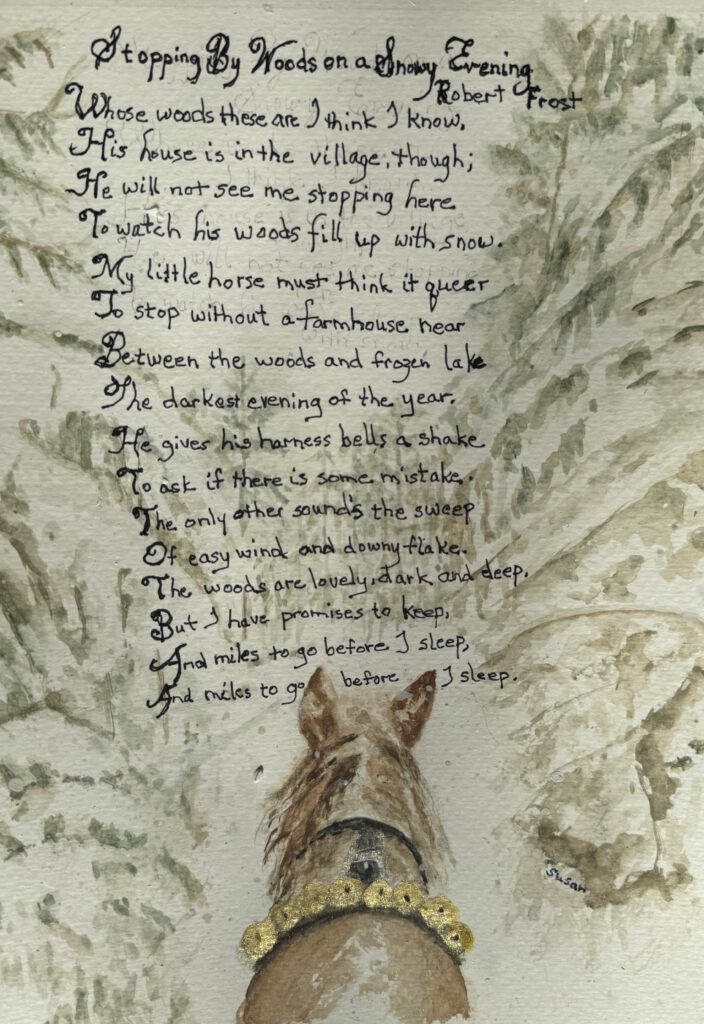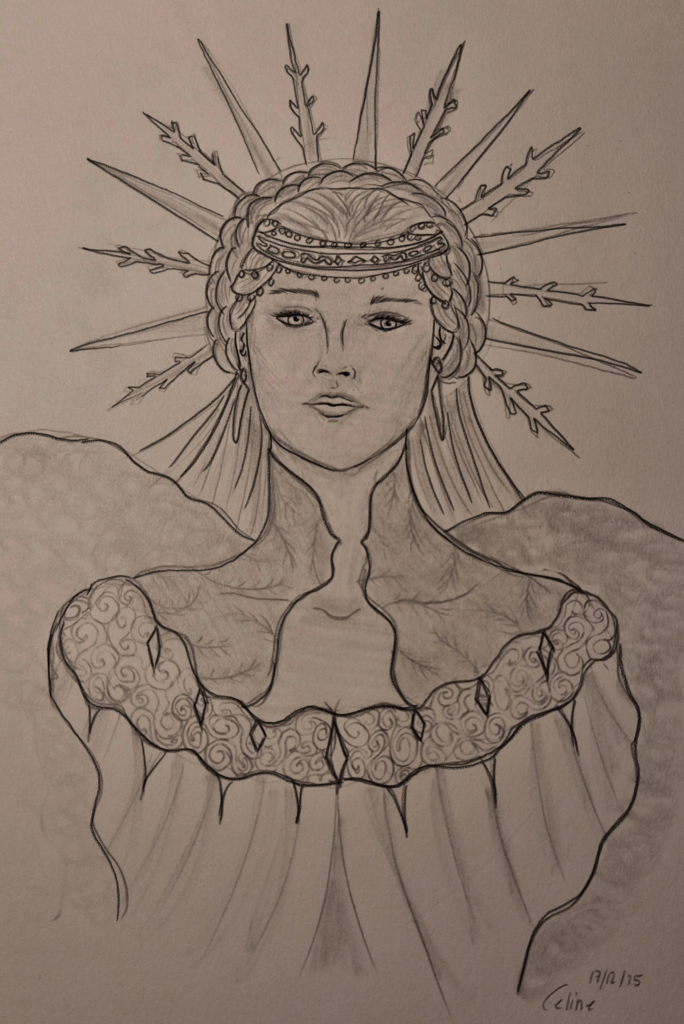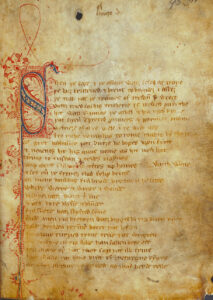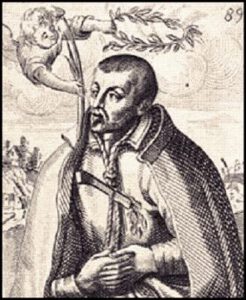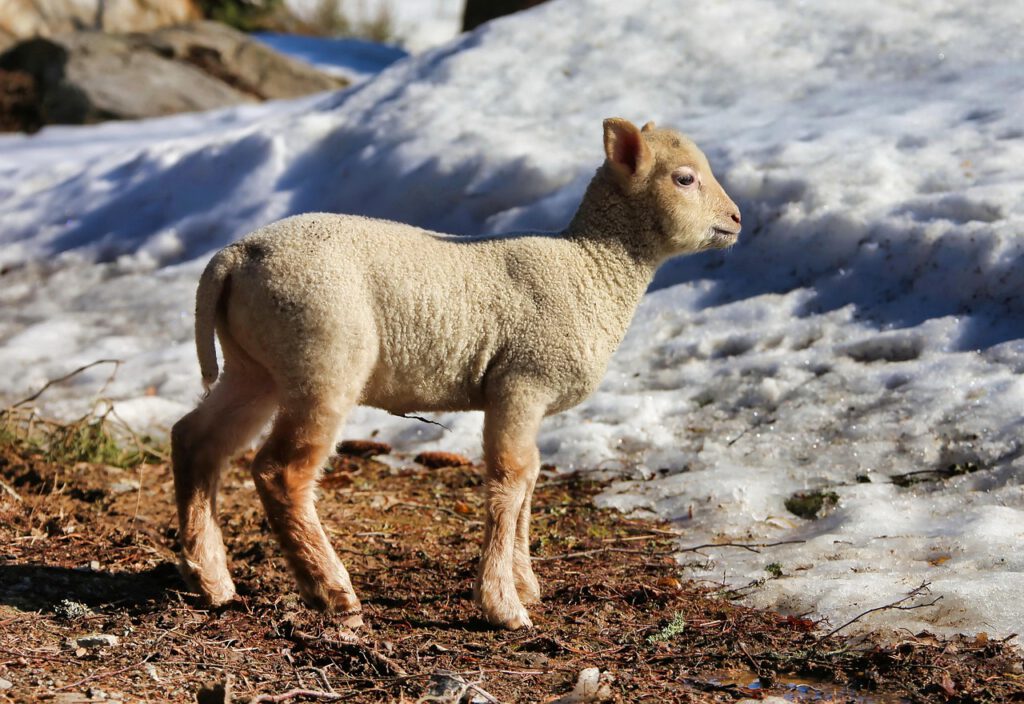"If we offend, it is with our good will": Staging Dissent in A Midsummer Night's Dream
David Laird
Published in Connotations Vol. 12.1 (2002/03)
Abstract
Shakeshare could offend the Elizabethan society, repeatedly subjecting prevailing ideologies, allegiances, and practices to multiple perspectives and valuations. He invites controversy even when he seems to go out of his way to avoid it. When prudence is called for, Shakespeare’s prudence is something less than determining. In A Midsummer Night’s Dream, prudential concerns, while certainly manifest, are overtaken by initiatives that open the play to a variety of contemporary issues and anxieties and bring into question, even dispute, familiar Elizabethan social and ideological arrangements. The enactment of this emancipatory, subversive strategy brings Shakespeare close to the edge of artistic and political indiscretion.
A Midsummer Night’s Dream shows a fluidity or mutability that pushes against the enforced divisions and discriminations that define much of Elizabethan political and domestic life. The energies released are, in effect, destabilizing and, in some instances, transgressive as well. They reach beyond the realm of fiction in ways that must have caught the attention of some members of Shakespeare’s audience even while escaping the notice of the censor. Shakespeare obviously uses the resources of the genre to cover his tracks. He manages to avoid being taken to task, being held accountable, by insisting on the play’s fictionality, its apparent containment within a world of make-believe. But the exercise of prudence in this regard should not blind us to those latent concerns in pursuit of which the play gains a wider currency.
In the climate of controversy that descends on late Tudor and Stuart England, Shakespeare is not particularly anxious to pick a fight with the authorities. There is good reason for him to be cautious, to mind his step, as it were, and to use whatever license theatrical artifice and the realm of fiction will afford. It is, perhaps, a measure of success that he evades official scrutiny more successfully than do many of his contemporaries.1) Yet he dares to offend, repeatedly subjecting prevailing ideologies, allegiances, and practices to multiple perspectives and valuations. He invites controversy even when he seems to go out of his way to avoid it. When prudence is called for, Shakespeare's prudence is something less than determining. In A Midsummer Night's Dream, prudential concerns, while certainly manifest, are overtaken by initiatives that open the play to a variety of contemporary issues and anxieties and bring into question, even dispute, familiar Elizabethan social and ideological arrangements. The enactment of this emancipatory, subversive strategy brings Shakespeare close to the edge of artistic and political indiscretion.
Such a claim must seem beside the point for a work so celebrated for its extraordinary theatricality and so often cited as a prime example of festive comedy.2) It does, after all, conform to the rules of the genre; it begins in separation, moves through confusion and bewilderment, and ends in multiple marriages and to the seeming joy and appeasement of all parties. But, as some critics, Louis Montrose and Thelma Greenfield among them, have been quick to point out, the promise of a happy ending does not altogether silence alien voices or persuade us that the issues the play raises have been settled once and for all.24)
[→page 36] Among those issues are the restrictions of class and gender and the absolutist claims of the Athenian state. They come into focus at various points through the play but most tellingly in the play−within−the−play and in the figure of Bottom the weaver. They thread their way through the targeted use of puns and malapropisms and a counter discourse that challenges the language of power and privilege. They are implicated in the cross−dressing, dressing up and dressing down, by which the artisans of Athens manage to escape, if only momentarily, the restrictions of their class and the shape−shifting in which Bottom is quite literally transfigured in an Ovidian commingling of the earthly and divine. They figure as well in the celebration of witchcraft and magic in violation of prevailing legal and religious prohibitions and, even more incautiously, in the promotion of Bottom from anxious, linguistically disruptive clown and subject of the Fairy Queen to arch rival and worthy adversary of the Athenian duke in a contest of mighty opposites the outcome of which remains in doubt even at the close.
These features have a common trait or characteristic. They share a fluidity or mutability that pushes against the enforced divisions and discriminations that define much of Elizabethan political and domestic life.3) The energies they release are, in effect, destabilizing and, in some instances, transgressive as well. They reach beyond the realm of fiction in ways that must have caught the attention of some members of Shakespeare's audience even while escaping the notice of the censor. Shakespeare obviously uses the resources of the genre to cover his tracks, to dodge the bullet, so to speak. He manages to avoid being taken to task, being held accountable, by insisting on the play's fictionality, its apparent containment within a world of make−believe. But the exercise of prudence in this regard should not blind us to those latent concerns in pursuit of which the play gains a wider currency.
Oberon's response to Puck's warning that ghosts scatter with the approach of day is an example of the enlistment of multiple registers to capture meanings both prudent and provocative. The Fairy King [→page 37] takes pains to point out that "we are spirits of another sort. ⁄ I with the morning's love have oft made sport."25) His refusal to be identified with the spirits of the night seems to suggest that Shakespeare, mindful of risks incurred with the introduction of the supernaturals, offers the distinction in an effort to forestall controversy. But it would seem no less the case that Oberon's apology, by confronting the audience with a world of difference, invites the very controversy it seeks to dispel.
It is a commonplace of criticism to acknowledge Shakespeare's borrowing from Reginald Scot's The Discoverie of Witchcraft, which not only tells the story of a witch who changes a young sailor into an ass, but also introduces Robin Goodfellow who "once provoked such fear and apprehension among a superstitious and credulous people that they were afraid of their own shadow."4) Scot reports that he no longer claims the respect once accorded to him and that witches some day "will be as much derided and contemned, and as plainly perceived, as the illusion and knavery of Robin Goodfellow."5) It is less often acknowledged that Shakespeare differs from his source by showing no such inclination to condemn or expose the mischievous sprite. Instead, he allows him to act as master of the revels, as much an agent of order and domestic harmony as of deviltry and discord. By doing so and by licensing the eye−dazzling exercise of magical, uncanny powers, he puts himself and the play in some danger.
A different sort of risk springs from the Ovidian materials with which the play is so richly stocked. Ovidian metamorphosis evokes a world of becoming and a freedom both terrifying and transformative.6) David Young in his splendid study of A Midsummer Night's Dream tries to fathom the complex role that Ovid plays in Renaissance thought.26) To that end, he turns to art historian Edgar Wind's account of the redemptive promise and soaring versatility that one Italian humanist was able to derive from notions of metamorphosis and mutability:
In Pico's oration On the Dignity of Man, man's glory is derived from his mutability. The fact that his orbit of action is not fixed like that of angels or of [→page 38] animals gives him the power to transform himself into whatever he chooses and become a mirror of the universe. He can vegetate like a plant, rage like a brute, dance like a star, reason like an angel, and surpass them all by withdrawing into the hidden centre of his own spirit where he may encounter the solitary darkness of God […]. Mutability, in Pico's view, is the secret gate through which the universal invades the particular.7)
Bottom's career describes "an orbit of action" that moves from failed attempts to play many parts to a magical transformation that sweeps him into intimate contact with a goddess. Transcending the rigidities of rank and station is itself transgressive and subversive. It suggests that such divisions are social constructs, in some sense, arbitrary, often unjust and capricious. In a society that still enforced the sumptuary laws, this blurring of class and cosmic boundaries must have been cause for concern.8) It is not only the decorum of dress that is at issue, but that of language and conduct as well.
At the first rehearsal of the play−within−the−play, Peter Quince warns the company of what may happen if Bottom were to present too convincing a lion: "you would fright the Duchess and the ladies that they would shriek; and that were enough to hang us all" (1.2.60−62). Bottom responds with a joke that enforces Quince's caution and mocks it as well: "If you should fright the ladies out of their wits they would have no more discretion but to hang us" (1.2.64−65). The remark at one level means that the ladies are without discretion in a legal sense, that is, without legal authority or jurisdiction in the matter, and would, therefore, have to accede to the hanging. At another level it suggests that, having lost their wits, the ladies would have no better judgment but to hang them. It's a marvelous bit of wordplay, implying that members of the court are themselves subject to Athenian law and suffer as well from a lack of discretion or reasoned judgment. Repeatedly Bottom's language slips from one level of meaning to another. At times the freewheeling ambiguities seem planned, contrived for a purpose. At other times, they are clearly accidental, unintended consequences quite beyond the speaker's control.9) Bottom is identified here and elsewhere with a kind of linguistic transgression in which one meaning mutates into another and [→page 39] the capacity of language to represent non−verbal phenomena is brought up for review. The relation between words and things is made to seem arbitrary; words, liberated from their referents, take on a life of their own. The versatility with which Bottom uses language or is used by it challenges those, Theseus most particularly, who would dominate the discourse.10)
Bottom's dazzling display of ambiguity shows up not only in what he says but also in what he aspires to become. He demands to be allowed to play all the parts, to become the part he plays and simultaneously another as well. He insists that his lion, were he to get the part, would be played "as gently as any sucking dove" and would roar like a nightingale. A mild, mannerly lion reduces the risk of offending those in power, an eventuality that might, as Quince warns, "hang us all" (1.2.62). But Quince tells him he is best suited to the part of Pyramus and will play no other:
You can play no part but Pyramus; for Pyramus is a sweet−faced man, a proper man as one shall see in a summer's day, a most lovely, gentlemanlike man: therefore you must needs play Pyramus. (1.2.68−70)
Clearly the artisans are aware of the downside of taking to the stage, of playing roles above or below their station. Snug, assigned the part of the lion, is instructed to say that he is Snug the joiner and only partly or sometimes the lion. His denial of his performance, of what he seeks to represent, acts as a safety device or means of damage control. The players lay the groundwork for their defense by inviting the willing engagement of disbelief, insisting that what is on offer merely hints at something else and is not, therefore, to be mistaken for it. They and presumably the playwright as well are careful to locate their production within the realm of fiction. The Ovidian materials including the tragic story of Pyramus and Thisbe help to define and populate that realm, a world of artifice and make−believe.
Bottom alerts the company to what may displease the audience: "First, Pyramus must draw a sword to kill himself, which the ladies cannot abide. How answer you that?" (3.1.9−10). Robin Starveling [→page 40] suggests that they omit the killing. Bottom counters by saying that he must be provided with a prologue to make clear that the actors do no harm and that Pyramus is not killed; "and for the more better assurance, tell them that I, Pyramus, am not Pyramus, but Bottom the weaver: this will put them out of fear" (3.1.15−17). The lion remains a problem and another prologue is proposed to make clear that Snug the joiner is not a lion:
Nay you must name his name, and half his face must be seen through the lion's neck, and he himself must speak through, saying thus, or to the same defect: […] 'If you think I come hither as a lion, it were pity of my life. No, I am no such thing; I am a man, as other men are'—and there indeed let him name his name, and tell them plainly he is Snug the joiner. (3.1.28−35)
Thus the actors will protect themselves by denying the reality of what they represent. Paradoxically they are also at pains to capture that reality, either by imitation or symbolic representation. The lovers meet by moonlight. The almanac is consulted and it is determined that the moon will shine into the great hall the night of the performance. There is a backup as well. If the moon fails to represent itself, then it will be "disfigured" in the person of Moonshine, bearing a bush of thorns and a lantern. A wall is no less critical and, since it is impossible to build one in the hall, an actor fitted out with plaster, loam, and roughcast must represent it. Whether by imitation or symbolic representation, the actors aspire to engage belief and simultaneously to dispel it. Their efforts with respect to the latter prove spectacularly more successful than do those meant to achieve the former. Their version of Pyramus and Thisbe seems destined to remain at best a parody or burlesque, the auditors in no danger of losing themselves in a performance that offers neither mirror image nor compelling metaphor.
There is a sharp contrast between this critical or theoretical discussion, which occurs while the players prepare for their first rehearsal and the rehearsal itself. The discussion bears a haunting resemblance to an academic department meeting in which various proposals are [→page 41] exhaustively explored. It is made to seem all the more academic in the light of what happens once the rehearsal is under way.
Quince urges the players to begin. Pyramus is to speak first, then to leave the stage and await his cue before returning. His opening line—"Thisbe, the flowers of odious savours sweet" (3.1.65)—brings an immediate correction from Quince. Bottom, accepting it, completes the speech and exits as directed. Thisbe speaks more than she is meant to. Quince tells her to repeat Pyramus's cue and he reappears, a changed creature with the head of an ass. The rehearsal is suddenly disrupted by the entrance of a translated Bottom and the players, abandoning their joint endeavor, scatter, as Puck later tells Oberon, like "wild geese" or jackdaws that "sever themselves and madly sweep the sky" (3.2.20, 23). The mood abruptly shifts from that of almost leisurely speculation to wild, panic−stricken flight. Earlier the players had been performing, acting, impersonating someone or something other than themselves, animating a relationship that remained metaphorical. Suddenly the performative metaphor is routed by the immediacy and literalness of metamorphosis. The effect is stunningly dramatic. Bottom, for the first time, plays a role in which, at least to his colleagues, he is what he represents and is entirely convincing, indeed, as convincing as he had earlier feared his lion might be to the ladies of the Athenian court.
Abandoned by his companions, Bottom reasons that they have run off in a bit of knavery intended, as he says, "to make an ass of me." He speaks truer than he knows, true both literally and, in view of his past performance, metaphorically as well.11) He decides to sing and thus to show the others that he has caught on to the joke. The song awakens Titania and the misadventure turns from awkward parody to luminous romance.12)
The extraordinary mix of genders, genres, classes, and categories has been dealt with in exemplary fashion and I would only recall that the episode is made the more sensational for being performed in a transvestite theater where a boy actor impersonates a goddess and another actor playing Bottom playing Pyramus becomes the man−beast [→page 42] consort of the Fairy Queen. There is a series of cross−dressings and undressings that transcends boundaries, even cosmological ones, in total disregard of patriarchal and political hierarchies. Perhaps it is only for the most obvious reasons that Bottom's "dream" remains a riddle.
When Bottom wakes, he is thrown back in time to that moment when, following his translation, the other actors abandon him. Recovering himself, he speaks a language that marks the distance he has traveled, as extraordinarily disruptive in its syntax and vocabulary as are the events he begins to remember as if in a dream. What he says unsettles linguistic norms, redresses the match between words and things, erases meanings imposed by habit and usage. It is defensive and private, yet somehow accessible as well, communicative of what remains visionary, unpresentable, unreachable:
Methought I was—there is no man can tell what. Methought I was—and methought I had—but man is but a patched fool if he will offer to say what methought I had. The eye of man hath not heard, the ear of man hath not seen, man's hand is not able to taste, his tongue to conceive, nor his heart to report what my dream was! (4.1.202−07)
As has often been noted, Bottom recites a garbled version of 1 Corinthians, 2:9−10. In an illuminating discussion of the speech in The Theater and the Dream, Jackson Cope argues that it is a "crucial rebuttal" to the Duke's speech on imagination.13) R. A. Foakes, in his edition of A Midsummer Night's Dream in the New Cambridge Shakespeare, finds that the confusion of the senses, the mismatching of word and referent, shows Bottom to be impervious to anything approaching the "deepe things of God," and that the verbal misfirings define his limitations.14) One might recall that in an altogether different context Hamlet introduces a similar confusion of the senses to signify delusion, trickery, and the devil's work.
What devil was't
That thus hath cozened you at hoodman−blind?
Eyes without feeling, feeling without sight.
Ears without hands or eyes, smelling sans all
[→page 43]Or but a sickly part of one true sense
Could not so mope. (3.4.70.1−70.11[Q2] in the Norton Shakespeare)
Hamlet portrays bad judgment in terms of the stumbling enactment of a kind of blind man's buff. That is not Bottom's game. His linguistic misfirings convey more than a whisper of what lies beyond the traffic of the world, a sense beyond sense, hallucinatory, ecstatic, a transport to the edge of revelation. There is a moment in The Great Gatsby when Nick Carraway almost remembers "a rhythm, a fragment of lost words."15) He, too, is possessed by a dream and manages to exorcise it by completing the only story he is able to tell. Bottom embarks on a similar project, seeking his release through the medium of poetry. He will arrange for the translation of what is intensely private and unworldly into the materiality of a written text, a ballad he proposes to sing at some future occasion:
I will get Peter Quince to write a ballad of this dream; it shall be called 'Bottom's Dream,' because it has no bottom; and I will sing it in the latter end of a play, before the Duke. Peradventure, to make it the more gracious, I shall sing it at her death. (4.1.207−11)
Bottom will seek the aid of poet−director Peter Quince to give voice to the unspeakable vision and thus to convey to others what reaches beyond the capacity of ordinary language. The ballad has no bottom presumably because it has no foundation, no basis in actuality. It also has no bottom because it is too deep, too profound, beyond any scale or measure, unfathomable, an enigma of bottomless depth. It is to be sung at the end of a play, not this play and not that of Pyramus and Thisbe. And it will be sung at her death though whose death is not specified—Thisbe's death or even the death of Queen Elizabeth who elsewhere in the play is enshrined in compliment as "the imperial votress" and "fair vestal thronèd in the west" (2.1.163, 158). However one reads Bottom's riddling declaration, whether simply awkward and inept as Foakes believes or expressive of an insight the world deems foolish, it is, nonetheless, an assault on ordinary language and usage. It serves as an alternative to the language of secular authority, not, in this case, the king's English but that of the Athenian duke.
[→page 44] Theseus leaves no doubt about where he stands in relation to the world of lions and shadows, declaring it the creation of lunatics, lovers, and poets. In another decade, James I will vow to banish ambiguity from his discourse.16) Theseus sets about a similar task, determined to isolate and expel the fantastic and the visionary.27) He regards what the lovers report of their sojourn in the forest as delusional, out−of−bounds, a threat to the various categories and classifications, linguistic and otherwise, by which he rules and by which he would bring the world to order.
Not unexpectedly the play moves to a confrontation between Bottom and Theseus. The two are more easily recognized as rivals in those productions in which the same actor plays Titania and Hippolyta. When that occurs, it could be said, to adapt Hamlet's remark about his rival, that Bottom has popped in between the Duke's erection and his hopes. Jan Kott stresses the relation between Titania and Hippolyta, describing Titania as "the night double of Hippolyta, her dramatic and theatrical paradigm."17) The relationship is hinted at when Oberon accuses Titania of having been Theseus's lover, a charge Titania dismisses as "forgeries of jealousy" (2.1.81). The competition between the Duke and Bottom works on a linguistic level as well. Theseus is enamored of his own sense of propriety and decorum. Exercising his linguistic prerogative he seeks to restrain the voices of others. He speaks with the voice of cool reason and in the belief that it lies well within the power of that voice to instill in others a sense of duty and obedience.18) Bottom is beyond that instruction. First, as Pyramus, he rebels against patriarchal authority when Thisbe and he agree to meet outside the city gates and then, as Bottom, he transcends his mortal state in defiance of laws no less confining. Leonard Barkan nicely describes Bottom as "one Minotaur whom this Theseus cannot slay."19)
The last of Bottom's vatic utterances is embedded in his final speech. Thisbe has made her peace with the sword: "Come, blade, my breast imbrue! ⁄ And farewell, friends ⁄ Thus Thisbe ends— ⁄ Adieu, adieu, adieu!" (5.1.326−27). Theseus observes that now only Moonshine and [→page 45] Lion are left to bury the dead. Demetrius is so bold as to add Wall to the list of survivors. Bottom is suddenly resurrected. He rises from the dead to declare that Demetrius is wrong: "No, I assure you, the wall is down that parted their fathers" (5.1.332−33).20) It is a curiously veiled, riddling, certainly audacious utterance. He assumes the role of director or stage manager to correct Demetrius, to tell him that the actor playing Wall has left the stage. But Bottom seems determined to correct the record in other ways as well. His words point to and illuminate the end to which the players have labored to bring their dismal performance. Ovid describes at length the wall that separated the two families and the chink in the wall through which the lovers were able to communicate or at least to breathe together.21) The wall proves more a barrier to the opposing families than to the lovers who defy their enforced separation. It is the separation between the families that the wall represents and it is the tragic loss of the young people that brings down the wall. The domestic and social divisions by which the fathers define themselves prove illusory in light of the tragedy that overtakes them. There is a further suggestion that the wall separating levels of dramatic representation, one set of actors from the other, even the actors from the audience, is about to disappear.
If Bottom's concluding speech, in effect his epilogue, is ignored by Theseus and the courtiers, it is not likely to be by the audience. It gains additional force by recalling what Theseus has said earlier in the scene: "Now is the mural down between the two neighbours" (5.1.201). The line follows Wall's announcement that he, having discharged his part, "being done, thus […] away doth go" (5.1.199−200). "Mural down" was first proposed by Alexander Pope who dismissed the first quarto's "Moon used" as a printer's error and changed the folio's "morall downe" to "mural down." Pope's emendation is widely accepted by modern editors. R. A. Foakes, for example, in the New Cambridge Shakespeare reviews several variants, among them "morall downe" and "mure all down," but reprints Pope's "mural down." "Mure" and "mural" both fit the context and offer the added virtue of recalling their French and Latin cognates, an association [→page 46] unfortunately lost in the recently published Norton Shakespeare and in the Oxford Press edition of 1986 on which the Norton text is based. In both editions, the line reads "Now is the wall down between the two neighbours" (5.1.205).22) The conjectural emendation furthers the match between Theseus's line and Bottom's but eliminates any suggestion of class difference or elitism in Theseus's Latinate diction. In one version or another, Theseus's remark, witty and self−serving though it is, previews what Bottom will say and, at the same time, is strikingly different in tone and content, Bottom's utterance fetching meanings that amplify and spread well beyond the reach of his rival. Even as the scene marks them as competitors, it backs up that sense of kinship born of the desire to take charge, to exert power and control, to claim both authorship and authority. The energy with which they variously pursue that desire signals a more generalized competition between modes of reference and response, ways of knowing and of telling.
Bottom is an actor and acknowledges as much. Theseus is no less so but blind to the fact, diminished by what he fails to understand. It is ironic that the character who has taken such pains to confine his performance to the world of artifice and illusion whether as a lion, an ass, Pyramus, or as lover of the Fairy Queen should be permitted to cross the line and speak in his own voice.
The concluding scene develops an irony about the order it celebrates. Theseus assembles the bewildered lovers and urges them to abandon "this palpable−gross play" with which they have "beguiled ⁄ The heavy gait of night" and to incorporate themselves into the society from which they, like Pyramus and Thisbe, had earlier departed (5.1.345−46). Puck, broom in hand, comes to prepare the ground for Oberon's entry and for the benediction he will confer upon the several couples and their progeny. In the course of that preparation, Puck throws into confusion the festive mood that Theseus has tried so hard to establish.23) He does so in a remarkable gesture of theatrical transgression, a violation of both literary and aesthetic decorum. He conjures up a succession of vivid images to represent those threats and [→page 47] denials that lurk beyond the compass of his control. Here the lion's roar is not the voice of Snug the joiner, not deployed for comic effect or parody. It is not even the Ovidian lion that bloodies Thisbe's scarf. It and the images that follow remind the audience that this play, too, is over, that its more congenial lions and shadows are about to fade. And they put the audience on notice of a world beyond the fictional one where poverty and death hold sway.
Now the hungry lion roars,
And the wolf behowls the moon,
Whilst the heavy ploughman snores,
All with weary task foredone.
Now the wasted brands do glow,
Whilst the screech−owl, screeching loud,
Puts the wretch that lies in woe
In remembrance of a shroud. (5.1.349−56)
Marshfield
Wisconsin
































 Ring out, wild bells, to the wild sky,
Ring out, wild bells, to the wild sky,







